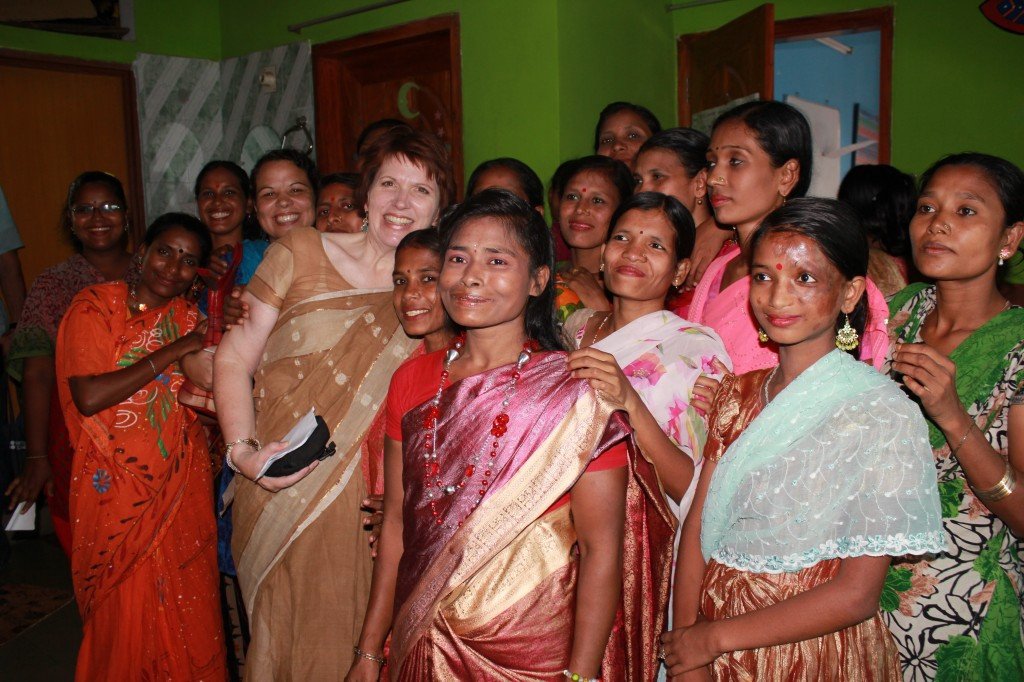Bangladesh’s transport stations and railways. This is where you go when you have absolutely nothing. You can sleep on the platform with your blanket and meagre possessions. Or you may even have a tent like structure that you fiercely claim as your own. It’s a place where everyone knows that life is cheap and flesh can be purchased. On a July night in 2010, two adolescent girls were preparing their beds on the train platform. “They’ll be in prostitution soon,” Razia, who had lived there most of her life herself, told me. A mother sheltered her four day old infant from the night air. A woman crazily shouted threats at me, at anyone. “This is the way everyone in prostitution ends up,” Razia solemnly informs.
The next day. I return to the train station. Families emerge from shelters made of scraps of tin and covered in plastic. Children play in the trash. Fatima’s mother eyes me shrewdly, selling her body to maintain this tent of plastic which is so much more than many others have.
Out of the corner of my eye, I catch a glimpse of movement, energy, colour. It’s three women from the training programme we’d set up through Mennonite Central Committee providing social support and job training for women wanting to come out of prostitution. Sister, sister, the three called as they waved reading books at me. We’re taking home books to practice our reading. Seeing the joy and hope on their faces, in the midst of so many others resigned to a destiny of squalor and degradation, and I knew I could not just leave Bangladesh when lives could be so radically transformed through dignified work, a living wage, and love.
Basha opened it’s doors for production 1 May 2011. Fourteen women made the intrepid journey from Children’s Uplift Programme (CUP) on the first floor to Basha’s new office on the second floor. Their lives had changed so drastically during their time at CUP, where they had received training and support to leave life on the streets and prepare for work. Starting employment at our fledgling facility was a big step!
The early days were challenging, with fourteen women working for the first time in such an environment. We quickly discovered that the tenacity which enables a woman to survive on the streets doesn’t make her the most ideal of employees. Quality standards were a new concept and had to be constantly reinforced and quarrels erupted frequently. Gradually things calmed down. The women discovered that with diligent work they made good money. Their faces showed less of the sharp pain of past trauma, gradually being replaced by peace and hope.
In January of 2012 we absorbed a line of jewellery, designed by Laura Bardwell working with Oasis. The opportunity to give women options in the work they would be doing seemed so consistent with our vision to not just employ women, but to help them learn to dream and to pursue these dreams. In April 2012 Basha opened a second office to employ women from Mennonite Central Committee’s Pobitra training programme more than doubling the number of women employed.
By our third year anniversary we more than tripled our infrastructure, our administrative staff, and our employment of those for whom we exist: women at risk and survivors of trafficking. Driven by the fact that so many women in Bangladesh are forced into lives they are deeply ashamed of, we are passionate to create jobs by continuing to produce unique, handmade, high quality products.

